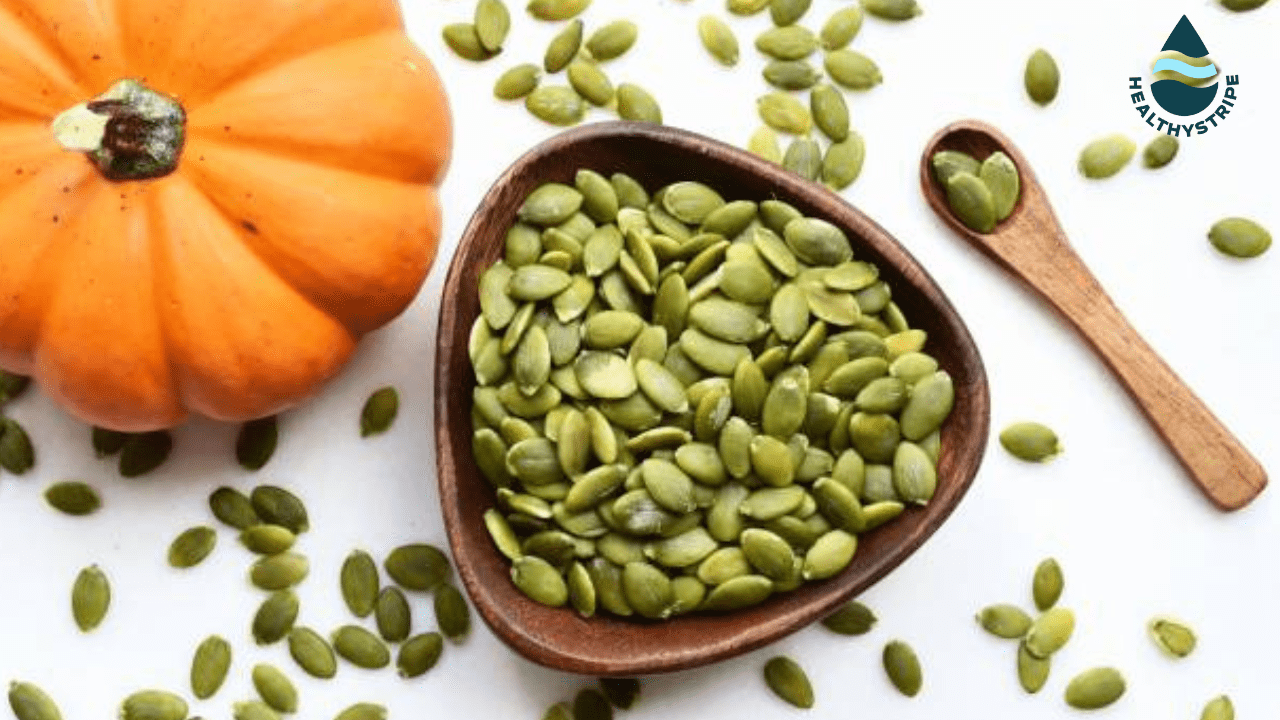Healthy Gut Diet Plan to Improve Your Gut Health

What is the compound effect? The act of reaping huge rewards from small, seemingly insignificant actions. This not only applies to productivity.
When you understand how to take care of your body’s needs, when you eat right and sleep right, and listen to your body, it functions at optimal levels.
Your gut is highly sensitive – the antibiotic you had for your infection, or the food poisoning you had during your vacation may alter your gut health.
C difficile colitis is an extreme case caused by an excess of pathogenic bacteria C difficile, often due to gut bacteria alteration after an antibiotic course.
So what can we do to restore it? Let’s learn about digestive health to find out about it.
What is Gut Health and why is it Important?
The minute health disturbances like bloating, inflammation, diarrhoea, fatigue and lethargy we usually ignore are all symptoms of poor gut health. Even though they might not seem significant, they add up to bring down your performance. Our gut has a plethora of microorganism colonies.
Are they all harmful?
Well, our gut bacteria have a combination of pathogenic(harmful) and non-pathogenic bacteria that help in food absorption. At any given moment the balance between the two determines your health state.
If you have been intolerant to certain foods or making more stops in the washroom than you usually do, it’s fair to assume that your gut isn’t in a healthy state.
This may lead to inflammation and poor absorption of nutrients which may result in obesity and cardiovascular incidents. It may also affect the gut-brain, gut-lung and gut-skin axis resulting in depression, anxiety, asthma and even skin irritations.
Benefits of a Gut Health Diet
According to the latest research, understanding the interaction of gut bacteria and intestinal cells has helped scientists improve the quality of health via diets that promote the growth and sustenance of good bacteria.
By contributing to energy homeostasis, preventing mucosal infections, and likely reducing immune hypersensitivity, the GI microbiota contributes to a healthy immune system. Its vital function of it is to maintain an intact GI barrier, which appears to have a close relationship with infectious, inflammatory, and allergic diseases.
- Malignancy – Good gut health increases bowel motility which prevents toxin buildup inside the body and prevents colon cancer as well as hernias
- Inflammation & Allergies – It reduces systemic inflammation thereby reducing the chances of chronic diseases like obesity, diabetes or cancer. It helps to boost immunity and prevent infections
- Cholesterol – The cholesterol absorption rate is lower in a healthy gut as compared to a diseased gut.
- Blood pressure – The short-chain fatty acids produced by the gut bacteria aid in the reduction of blood pressure. This pathway is mediated by certain receptors that respond to SCFA in blood according to research. These, in turn, reduce stress on the heart leading to a healthy heart.
- Heart – TMO( trimethylamine N-oxide ) is a highly toxic agent that is produced by pathogenic gut bacteria and is responsible for heart disease. A healthy gut microbiome ensures little to no TMO in blood.
- Brain health – Healthy gut leads to a reduced incidence of depression and anxiety. The SCFA produced by healthy gut bacteria during fibre breakdown has been shown to improve mood and cognition. It also affects the parasympathetic functions associated with an appetite as well as dopamine levels in the blood.
How to Start a Gut Health Diet
Don’t go blindly, by the book, before you start your journey towards a healthier gut, know your body and understand your intolerances. Keep a log of what you consume, how much you consume and how your body has been reacting to it.
Also Read: 10 Drinks That Make You Poop Immediately
Foods to Eat on a Gut Health Diet
Here are a few gut health boosters, you may consider.
- Fermented Food –
The gut barrier functions better when fermented foods are consumed, such as sauerkraut (cabbage) and kefir (soured milk).
- Prebiotics-
These are food items that promote and maintain the growth of healthy gut bacteria. If you are consuming enough fruit, you might be already getting them naturally. Here are a few food items, rich in pre-biotics.
- Apples
- Berries
- Asparagus
- Beans
- Garlic
- Oatmeal
- Collagen- Some research has shown evidence of improved gut microbiome by collagen supplements in test animals. You may also improve your body’s collagen production by consuming citrus fruits, broccoli, meat, eggs and nuts.
- Fibre- Fibre sustains gut bacteria, producing products that regulate various body functions. Fruits and vegetables, cereals, whole grains, nuts and legumes are rich in fibre.
- Polyphenols- Food rich in micronutrients like polyphenols, found in tea, coffee, wine, fruits and vegetables may also help in maintaining gut health.
Also Read: The Leaky Gut Diet Plan: What to Eat, What to Avoid
Foods to Avoid on a Gut Health Diet
What works for your colleague won’t work for you and vice versa. Check for yourself. If you see signs of discomfort, indigestion and bloating, your body might be rejecting it and giving you signs to redesign your diet. Here are some foods you should try to avoid.
- Alcohol – The bad hangovers and the irritable mood following a night after partying seem to affect just a day but regular drinking may affect the gut lining and alter intestinal bacteria. Cut back on alcohol or make it an occasional affair.
- Sugar – Cut back on processed sugar, and opt for natural alternatives like honey as they have prebiotics to boost your gut health
- Processed Food – The preservatives and chemicals that are present in processed food may affect your gut health. Opt for locally sourced veggies and fruits instead.
- Diary – If you are intolerant to dairy, you may use other forms like hung curd or cottage cheese.
- Gluten – Gluten causes allergic response and limits the growth of healthy gut bacteria.
- Beans and Pulses – Lectins are sugar-binding proteins found in beans and pulses that cause dysbiosis in some people once consumed in high amounts.
Sample Meal Plan for a Week on a Gut Health Diet
If you are eager to start your journey to restore your gut health but feel confused about where to start, here are some tips to keep in mind.
- Start your journey with a 2-week detox, keep track of your mood, and your current problems eg. bloating weight gain, and mood instability. It helps to compare the changes after your 4-week journey.
- 20-30 varieties of vegetables with 5 cups of veg and 1 cup of fruits per day, ⅔ of it is used to feed your microbiome and the remaining ⅓ good quality protein ( plant or animal) to satiate your hunger.
- Try to chew slowly and eat mindfully. Stop when you no longer feel hungry. Try not to eat till your maximum capacity to avoid dysbiosis. Dysbiosis occurs when the balance is altered and pathogenic bacteria outnumber healthy gut bacteria.
- 12 hr fast – Limit your snacking and try to maintain a 12 hr gap for the bacteria to restore its function.
Spice up your meals
Indian household has a diversity of spices that are used in meal preparations. Incorporate generous amounts of spices and herbs like ginger, garlic, cayenne, coriander and cumin. They are rich in anti-inflammatory agents that contribute to microbiome diversity.
Every country has a unique sauce. Make your ethnic sauce or opt for unprocessed ones like sea salt, scallop sauce, fish sauce, Kalamata olives, balsamic vinegar, and apple cider vinegar
Snack on fruits – but limit your intake
Fruits are a great snack but remember to limit your consumption to 2 portions a day. Try to go for fresh locally sourced seasonal fruits instead of frozen ones as they have high levels of fructose that may cause yeast overgrowth.
Smart ways to swap your carbs
If you want to reduce carbs, spiralised courgettes or squash in place of spaghetti or noodles, or sauté blitzed cauliflower instead of rice.
Gut Health Diet Sample Menu: Weeks 1 and 2
| Time | Breakfast | Lunch | Dinner |
|---|---|---|---|
| Week 1 + 2 | 130g spinach+ 230ml filtered water+ 1 orange+ 50g almond+ mint leaves and 2cm ginger eg- scrambled eggs with parsley and spinach/ salmon+ avocado+paprika | roast pepper and tomato soupNicoise salad/ Baked salmon/chicken + beetroot hummus. Add bitter leaves like radicchio, rocket and chicory that aid in faster digestion | Stir fry veggies + protein. Keep your plate colourful Season with- virgin olive oil, chopped ginger, fish and tamari sauce/ Lamb Curry |
Weeks 3 and 4: Now that you have got a detox from all the bad health decisions you had previously made, this is the time to finally start your gut health journey. Boost up your prebiotics and fermented food consumption while you start week 3 of your gut health journey.
| Time | Breakfast | Lunch | Dinner |
| Week
3 + 4 | Kefir + berries+ flax seed+ banana nut bread | chicory, walnut and apple salad/ German potato salad | An easy-to-make squash soup, topped with Roquefort, or a ceviche |
Summary- Studies suggest that nearly 70-80% of our immunity-producing bacteria are present in our gut. Frequent illness may indicate poor gut health. With antibiotics and over-the-counter medicines dropping like bombs, maintaining gut health has become a challenge.
While medicines provide symptomatic relief, it’s important to take care of the source to avoid flare-ups. With a major shift in the quality of food, with the popularisation of nutrient-poor food, it’s important to redirect our path and aim towards a holistic and natural way of promoting health starting with maintaining our gut health.
Still, have a few doubts? No worries! Our FAQs have you covered
FAQs
Are eggs good for gut health?
What is the best fruit for gut health?
Apples, peaches, cranberries and figs are all good for gut health. However, bananas are the clear winner n this category as they’re a powerhouse of dietary fibre and micronutrients. A banana a day keeps gut issues away.
Is coffee good for gut health?
Coffee increases gut mobility and has polyphenols that promote the growth of good gut bacteria. So, the research suggests that coffee is beneficial for gut health.









